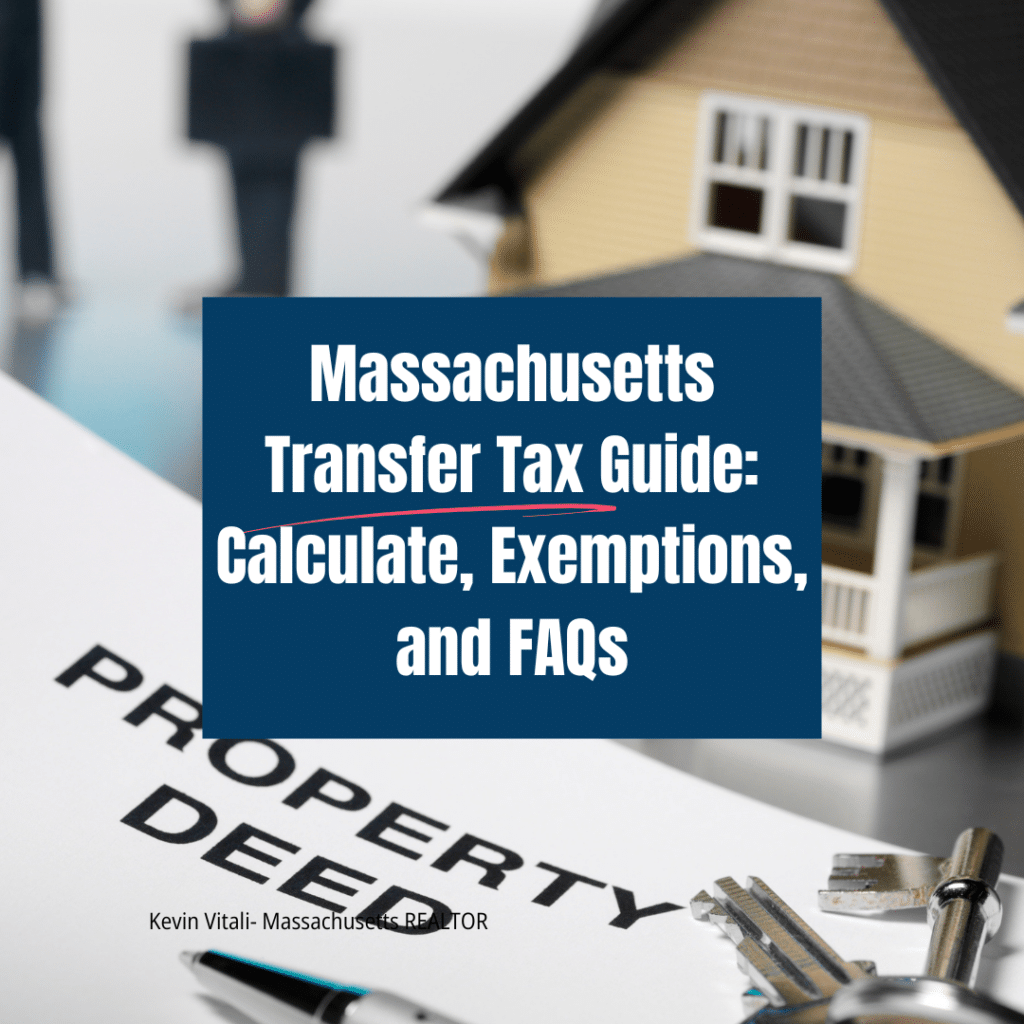If you buy or sell a home you may hear talk about real estate contingencies in a contract. Understanding what real estate contingencies are and what bearing they may have on you is important during a transaction.
Of course, sellers are concerned with the purchase price potential buyers are willing to pay, but the terms and conditions of the contract can be important as well. This includes any contingencies a buyer may be requesting.
Buyers may also want to pay attention to see if the seller has any contingencies that can prevent a sale from happening after a purchase contract is signed.

What is a Real Estate Contingency?
A standard real estate sales contract is a contract with conditions to be met called a contingency. It is a clause in a real estate contract where an event must occur in a specific time period.
It is an if-then scenario. Something needs to happen by a specific date for the contract to stay in full effect or the contract can be nullified by one of the parties.
If the party cannot perform by a specified date, they have the option to void the contract with no recourse. It is basically an option one party negotiates to back out of a contract if they can or cannot meet certain conditions.
Contingency clauses in an offer or contract can benefit either a buyer or a seller during a real estate transaction
Home Buyer Contingencies
A homebuyer in Massachusetts typically makes a contingent offer in the form of a Contract to Purchase. The Massachusetts Contract To Purchase has two conditional clauses written into it, a financing contingency and a home inspection contingency.
Remember real estate is very local, talk to your local REALTOR about what is included in a standard contract.
Mortgage or Financing Contingency
A mortgage clause states that the buyer must obtain a mortgage commitment by a specific date. It protects the home buyer from being denied a mortgage and losing their good faith deposit money.
Remember, a pre-approval letter from your lender is not a commitment to lend. A preapproval letter states that a preliminary review has been done but you have not submitted an application and underwriting has not approved your mortgage application. A mortgage commitment is just that, a commitment to lend under certain conditions where an underwriter has vetted your mortgage file and has approved your mortgage loan.
Here is a mortgage clause excerpted from a standard Massachusetts Purchase and Sale Agreement:
Mortgage- (Delete If Waived) The BUYER’S obligation to purchase is conditioned upon obtaining a written commitment for financing in the amount of $X.XX at prevailing rates, terms and conditionsby (Insert date) The BUYER shall have an obligation to act reasonably diligently to satisfy any condition within the BUYER’S control. If, despite reasonable efforts, the BUYER has been unable to obtain such written commitment the BUYER may terminate this agreement by giving written notice that is received by 5:00 p.m. on the calendar day after the date set forth above. In the event that notice has not been received, this condition is deemed waived. In the event that due notice has been received, the obligations of the parties shall cease and this agreement shall be void; and all monies deposited by the BUYER shall be returned. In no event shall the BUYER be deemed to have used reasonable efforts to obtain financing unless the BUYER has submitted one application by and acted reasonably promptly in providing additional information requested by the mortgage lender. If your mortgage is denied, you have the ability to cancel the contract and get all of your earnest money deposit back and the seller cannot seek any legal action against you. Home Inspection Contingency
Home Inspection Contingency
This gives prospective buyers a certain period to conduct a home inspection of a property with a licensed home inspector. This allows the buyer to thoroughly inspect the property and time to review the home inspection report to ensure they are buying a home free from significant problems.
This is an excerpt from the Massachusetts Standard Contract to Purchase regarding the Home Inspections:
Inspections.(Delete If Waived) The BUYER’S obligations under this agreement are subject to the right to obtain inspection(s) of the Premises or any aspect thereof, including, but not limited to, home, pest, radon,lead paint, septic/sewer, water quality, and water drainage by consultant(s) regularly in the business of conducting said inspections, of BUYER’S own choosing, and at BUYER’S sole cost within (X) days after SELLER’S acceptance of this agreement. If the results are not satisfactory to BUYER, in BUYER’S sole discretion, BUYER shall have the right to give written notice received by the SELLER or SELLER’S agent by 5:00 p.m. on the calendar day after the date set forth above, terminating this agreement. Upon receipt of such notice this agreement shall be void and all monies deposited by the BUYER shall be returned. Failure to provide timely notice of termination shall constitute a waiver. In the event that the BUYER does not exercise the right to have such inspection(s) or to so terminate, the SELLER and the listing broker are each released from claims relating to the condition of the Premises that the BUYER or the BUYER’S consultants could reasonably have discovered
Other Real Estate Contingencies For Home Buyers
We discussed two real estate contingency clauses that are standard in most contracts for home buyers. But almost anything can be written into an agreement. I have seen written contracts where certain conditions needed to be met. These could include verifingy funds, funds being sent from another country, pet approval at a condominium or an offer letter for a job…. You name it and someone has probably seen a contingency around it.
Here are some other common clauses that may be built into a standardized contract or are common buyer requests.
House to Sell or Home Sale Contingency
One of the more common buyer clauses you can see is a “house to sell contingency”. This clause states the buyer has a specific time frame to get their current home under contract and closed by a specific date. This is used when a buyer has a house and needs the proceeds from the sale to close on a new home.
As a listing agent, I usually want to see if the house is already under contract and when it will close before I advise my seller client to accept a contract including this language. If your home isn’t even on the market, good luck getting any seller to accept a house-to-sell contingency in a neutral or seller’s market.
Ability To Obtain A Title Insurance Policy
This is a clause that is standard to many contracts. It states that the sale is contingent upon the buyer being able to obtain a title insurance policy that protects a home buyer from any title defects that may be found after the sale of a home.
Appraisal Contingency
The sale of a home may be made contingent based upon the home appraising for at or above the purchase price. While a home not appraising for the purchase price should be covered by the mortgage contingency it does leave some grey area. Many real estate attorneys like to make the purchase contract contingent on the home appraising at or above the purchase price protecting the buyer from a low appraisal on the home.
The appraised value ensures that fair market value is being paid for the home. In very hot real estate markets buyers may be willing to remove their appraisal contingency to strengthen the real estate deal and get their offer accepted.
Common Home Seller Contingencies
Just like home buyers, sellers will have some contingencies in a standard contract as well as add any number of contingencies based upon their circumstances.
Seller To Find Suitable Housing Contingency
This type of contingency allows a seller to accept an offer on their home and give them a certain time to secure another home. Usually, a buyer will give a seller 30-60 days to find another home. If the sellers can’t put a house under agreement the contract would be null and void.
Probate Contingency
Another, less common one, you might see involves an estate property with a probate contingency. This allows the heirs of an estate a certain amount of time to get permission from the probate courts to sell the estate property. It is not as common as a find suitable housing contingency but it is one you could run into as a home buyer.
Failure To Perfect Title
Many contracts have a clause that the seller can void a contract if after doing their due diligence they cannot provide a clean and marketable title. The purchase agreement will spell the certain steps a seller needs to make before they can void the contract.
Like I pointed out earlier there can any number of contingencies that a buyer or seller may consider putting in a contract. I have just touched upon a few common ones.
About Real Estate Contingencies- When to Use One
We discussed the “standard contingencies” that are widely accepted as the norm and often part of a standard contract. Many of these standard clauses are there to protect you and your deposit money and should be part of a contract.
But what if you are asking for a contingency that may not be considered a normal part of a standardized contract and are specific to your circumstances?
I tell my home buyers and sellers their options and to think if they really need to use a clause that might scare either party away.
One common contingency a home buyer may ask for time to sell their current home. Or a home seller may ask for a find a suitable housing. Neither contingency is standard to a contract and is specific to that buyer or seller.
Realize a contingency may cost you money and possibly prevent you from selling a home for the price you want or buying the home you want.
Yes, I did just say that! Think about it, if you put language that is an if-then scenario in a contract you are adding a layer of risk of not closing for the other party. While a contingency seems like a great idea, avoid using them whenever possible.
Basically, you are telling someone I have a house to sell or I want to buy a house but a few things need to fall in place first, that may or may not happen, but I want you to wait for me to work it out.
Usually, but not always, that contingency will cost you something. With greater risk, there is a greater reward for the party willing to accept any number of contingencies. You will probably pay a little bit more for the house or have to give a little bit more off to entice the other party to wait to see if they can close on your circumstances.
Also, there is a risk a buyer or seller does not even want to bother with the contingency at all and will not accept your offer…. at any price.
So again, knowing this, I ask my client do you really need this contingency? Many times a buyer or seller may need it to protect their assets, while others can make alternative arrangements and avoid using a contingency on a contract.
A home buyer or seller can avoid these contingencies in both cases.
In the case of a home buyer who needs to sell a house can go on to sell, bank the money and secure temporary living arrangements until they find another home to purchase.
The same goes for a seller who needs to find suitable housing; they can sell their house and find interim housing until they secure a permanent home.
Of course, it is more convenient to use the contingency in both scenarios, but at what cost?
What To Do If You Are Approached With A Real Estate Contingency
Most, but not all seller contingencies above what is considered the norm are disclosed upfront in the Multiple Listing Service so you know whether you want to get involved before writing an offer. Sellers will know by reviewing an offer.
Each can be so varied and every deal is so different. Each needs to be carefully reviewed on a case-to-case basis.
Review the contingency with your real estate agent. Discuss whether it is reasonable for current real estate conditions and your situation.
For example, in a hot seller’s market, you don’t usually need to consider offers with the condition that the buyer has a house-to-sell. Still, if you are in a buyer’s market with slow buyer activity, you may have to consider an offer with one.
If you decide to move forward with a contract with a contingency, keep your timelines tight. Don’t give 90 days forto clear the condition, keep them at 30 days with an agreement that if both parties agree they can extend.
Also, make sure the other party keeps you updated on their progress. Are they motivated to deliver? Has a court date been set for probate? Is the seller out looking aggressively? How many showings have the buyer had on their house?
Be informed. Have your agent do their due diligence and understand the impact the conditional clause will have on the transaction. What do I mean…. well if a buyer presents a contract with a house to sell clause and their house is under agreement or going under agreement I will ask to see all the paperwork involved… pre-approval, contracts, deposit monies, etc…. Find out what is the likeliness of the contingency being removed and heading to a successful close.
Final Thoughts on Real Estate Contingencies
On a positive note, if you decide to get involved in a contract with a contingency, as real estate agents, we put deals together with these conditional clauses all the time. Remember, the other party is usually very motivated to make it happen and will be motivated to hit the closing date on time.
In all the years I have been an agent, there have been certain contingencies in a contract my clients have rejected, but the ones that have been accepted have only been several transactions that didn’t close. But enter into the contracts wisely, ask the right questions, and know the market.
Remember, real estate contracts are legal and binding. A contract spells out home buyers and sellers’ roles and certain steps with specific dates. Time is of the essence and dates are critical. It is important that you carefully read any contract and understand terms and deadlines.
It is always a wise idea to have any contracts reviewed by an attorney.
Other Real Estate Resources:
Bill Gassett- A Right of First Refusal can be a great way to accept a contingency in a contract and be able to accept another offer while in the contingency period.
Kyle Hiscock- Learn what home buyer contingencies a home buyer may want to consider with Home Buying Contingencies to Put In Your Purchase Offer
Anita Clark- Learn more about how How Does A Contingency Home Sale Work?
Paul Sian- Just because a contract is signed, it is not a 100% guarantee that your transaction will close. Learn How A Pending Home Sale Can Fall Apart

Author Bio
Kevin Vitali is a Massachusetts REALTOR out of Haverhill MA that serves Essex County and Northern Middlesex County in Massachusetts. If you want to buy or sell a home, let me use my years of experience to get you the best possible outcome.
Feel free to contact me to discuss any upcoming moves. I am always happy to answer your questions
Call 978-360-0422 Email kevin@kevinvitali.com




